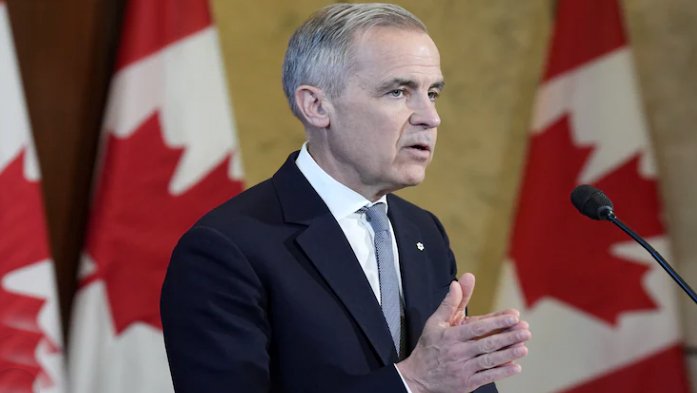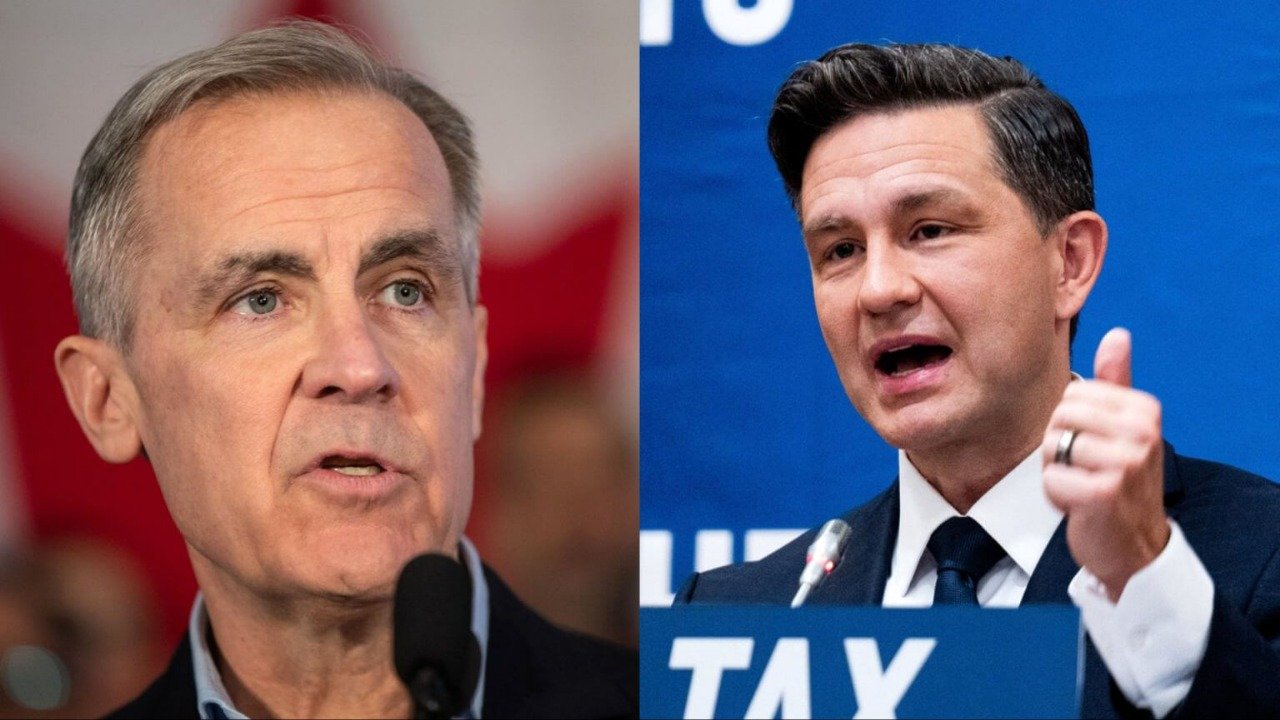Ottawa : Canadian Prime Minister Mark Carney has pledged a robust counterattack following U.S. President Donald Trump’s announcement of a 25% tariff on all auto imports, a move set to take effect on April 3. Labeling the tariffs a “direct attack” on Canadian workers, Carney warned that the longstanding economic ties between the two nations are at a breaking point, signaling a dramatic shift in Canada-U.S. relations.
Trump unveiled the new tariffs on Wednesday, asserting they would bolster American manufacturing by encouraging automakers to shift production to the U.S. “This is permanent,” Trump declared, emphasizing his intent to reshape North American trade dynamics. The tariffs target vehicles and light trucks from Canada, Mexico, and other major auto-exporting nations, threatening to disrupt the highly integrated North American auto supply chain established under the U.S.-Mexico-Canada Agreement (USMCA).
In a fiery press conference on Parliament Hill, Carney vowed that Canada would not back down. “We will fight these tariffs with retaliatory trade actions designed to have maximum impact in the United States and minimum disruption here at home,” he said. While specifics remain under wraps, Carney hinted at a strategic response, potentially targeting U.S. commodities like oil, gas, or agricultural goods. Canada has already imposed $60 billion in retaliatory tariffs on U.S. imports in response to earlier Trump trade measures, and officials suggest an additional $95 billion in American products could soon face duties.
The auto sector, a cornerstone of Canada’s economy, braces for chaos. Industry leaders warn of impending layoffs and higher vehicle costs, with the integrated supply chain—where parts and vehicles crisscross the border—facing severe strain. “President Trump fails to grasp the damage this will inflict on workers and consumers on both sides,” said David Payne of the Canadian Auto Manufacturers Association. Analysts estimate that the tariffs could raise the price of a Canadian-made crossover vehicle by up to $4,000 in the U.S. market.
Carney, who paused his federal election campaign to address the crisis, framed the tariffs as a betrayal by an “unreliable partner.” He announced plans to convene with provincial premiers on Friday and speak directly with Trump in the coming days. “The old relationship with the U.S. is over,” he said sombrely, promising to pivot Canada toward greater economic autonomy.
The announcement has galvanized Canada’s political landscape ahead of the April 28 election. Conservative Leader Pierre Poilievre criticized Trump’s approach but urged a focus on alternative markets, while NDP Leader Jagmeet Singh called the tariffs an “illegal trade war” and proposed bolstering domestic auto production. Meanwhile, Ontario Premier Doug Ford expressed cautious optimism after a call with U.S. Commerce Secretary Howard Lutnick, suggesting some Canadian vehicles might face reduced tariffs—a claim the White House later denied.
As tensions escalate, the stakes are high. The U.S. imported $413 billion in goods from Canada last year, with autos and energy leading the charge. With Trump threatening even steeper tariffs if Canada coordinates retaliation with the European Union, the stage is set for a bruising trade battle that could reshape North America’s economic future. For now, Canada stands united, ready to strike back.




